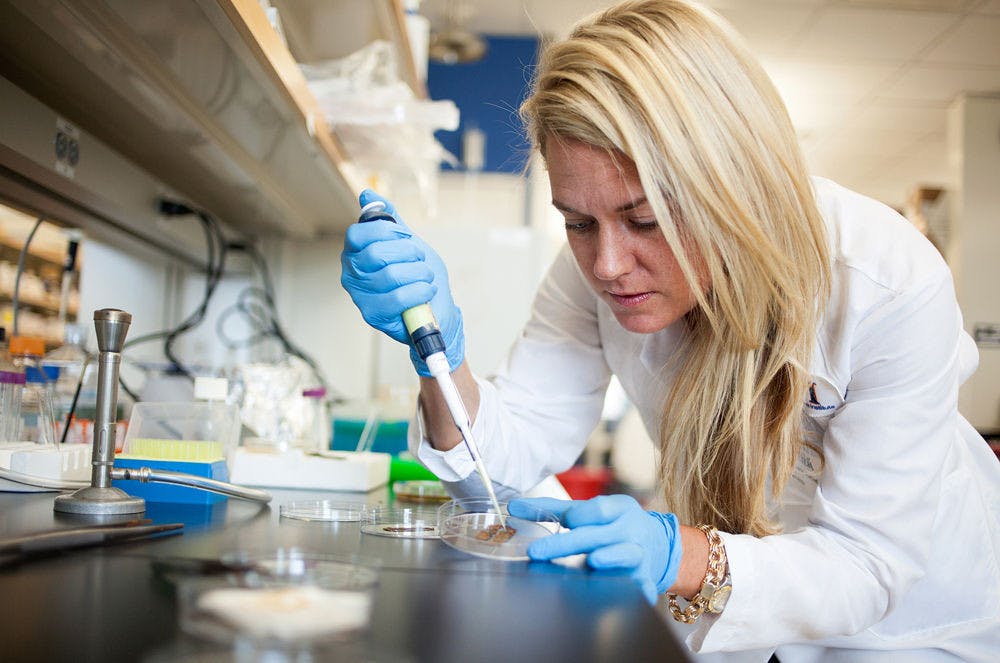When she was an energetic third-grader, Margo Klar had the chance to invent something. She decided to make a folder for her kitchen sink that holds all utensils and takes up little space.
As a senior at the University of California, Irvine, she created a medical device for people with sleep apnea.
Now as a doctoral student at UF, she invented a Ceramic Cord Cutting Device, known as C3D. The reusable umbilical cutter doesn’t rust and can be easily sterilized and used safely to prevent harming the newborn, mother and health care worker.
This time, Klar received about half a million dollars for her idea.
Klar, 31, was awarded $493,000 by the phase II of Grand Challenges Explorations, an initiative created by the Bill & Melinda Gates Foundation that rewards innovative ideas in global health research.
“I have always really enjoyed problem solving and coming up with solutions,” said Klar, a student in the department of epidemiology at the UF College of Public Health and Health Professions and the UF College of Medicine.
In 2011, Klar was awarded a phase I grant to develop the prototype for the C3D.
“Because of the success of phase one, I had to apply for the second phase,” Klar said. “We had all indications pointing toward going forward.”
The grant will be used to introduce C3D to health care workers in seven countries including Thailand, India, Kenya and Pakistan.
About 4 million children die during the neonatal period, according to the World Health Organization. Infections are the major cause of death, and hygienic practices could reduce about 1 million of them, Klar said.
“This affects more than the baby,” she said. “This affects the family and the community as a whole.”
But Klar said in most cases, resources are scarce so donated blades or scalpels from aid agencies are reused and can lead to contamination.
“People will use whatever they can get their hands on when resources are limited,” she said. “It could be glass shards, machetes or kitchen knives. It’s survival mode.”
Klar had a team of UF professors and researchers working to help her on the project, including Deepthi Varma, a research assistant scientist in the epidemiology department.
“I believe these are the kind of projects that will help to elevate UF to the global stage as a pioneering institute that nurture students to develop and implement life-saving ideas,” Varma said.
[A version of this story ran on page 5 on 11/13/2014]
UF epidemiology doctoral student Margo Klar has received a nearly half-million-dollar grant to support ongoing development of a ceramic umbilical cord cutting device for use in developing countries.






